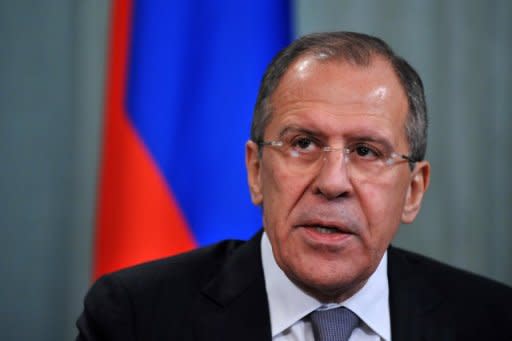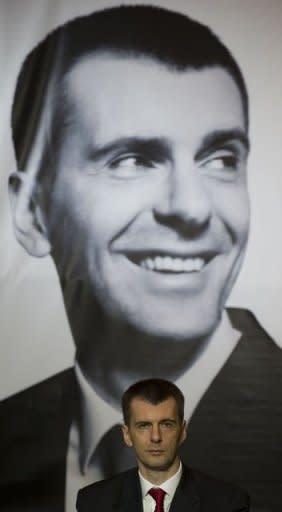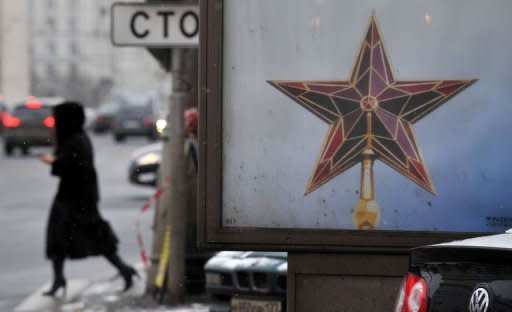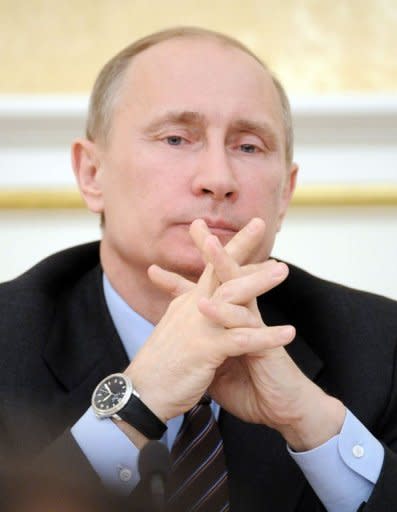Russia accuses US of meddling ahead of vote
Russia on Thursday accused the United States of trying to influence its election process by funding opposition groups in advance of Vladimir Putin's expected return to the Kremlin in the weekend poll. The charges came as officials braced for mass protests that have been called for the day after Sunday's election in which the Russian strongman is expected to breeze his way past four weak rivals to a third presidential term. Investigators began to probe alleged dirty tricks practiced by Putin's opponents while Foreign Minister Sergei Lavrov launched a lacerating critique in which he accused the United States of trying to push Russia around. "The days when Russia could be lectured or preached to are over," Lavrov said in an interview with the online edition of the Rossiyskaya Gazeta government daily. "Our American partners understand this perfectly well, but the inertia of past approaches and stereotypes in Washington is still evident," Lavrov said. "We respond firmly... to attempts to affect the political and electoral processes in Russia, including by way of funding civil society groups." The remarks echo a similar attack by Putin and follow a state-led crackdown on a Moscow-based election monitor called Golos (Voice) that openly receives funding from the West. Putin had earlier accused the US State Department of inciting the street protests that erupted in December following disputed parliamentary elections and have continued ahead of Sunday's vote. The former KGB spy's comments drew a sharp US response and now threaten to complicate relations that US President Barack Obama had tried to "reset" with his outgoing counterpart Dmitry Medvedev in 2009. Golos has become a visible irritant for the Russian authorities and was the subject of a vicious smear programme on state television that aired just days ahead of December's elections. The same station planned to air "Part 2" of the show on Thursday night with the focus turning to financial links between Russian opposition leaders and the West. Golos described Sunday's election as a farce. "This is not a campaign between one candidate and others. It is between a main candidate and society which is protesting for fair elections," Golos member Alexander Kynev told reporters. The group has promised to published a detailed post-election study that aims to chronicle abuses recorded Sunday by its thousands of monitors. Officials appeared to be attempting to preempt those findings by launching an investigation into strange videos released this week supposedly documenting cases of electoral fraud. The clips downloaded to YouTube were staged to make it seem like they were shot on election day. One showed an angry voter discovering that someone had already cast his ballot for him. The preliminary probe into the footage was launched just a day after Putin accused the opposition of planning to "stuff ballots themselves, monitor this and then report on it" as evidence of violations. Many Russian bloggers suspect the clips are the product of pro-Kremlin youth groups that want to dilute and discredit real evidence of fraud. All the four candidates challenging Putin have to a greater or lesser degree kept their distance from the protest movement and none has poll ratings approaching 20 percent. One activist suggested as an alternative to Putin -- the anti-corruption lawyer and blogger Alexei Navalny -- took the chance to publish a major policy statement on ways to break the ties between big business and the state. "In Putin's Russia, it is not talent and hard work that makes billionaires, but having the right friends down at the dacha," Navalny wrote in the Vedomosti business daily.






